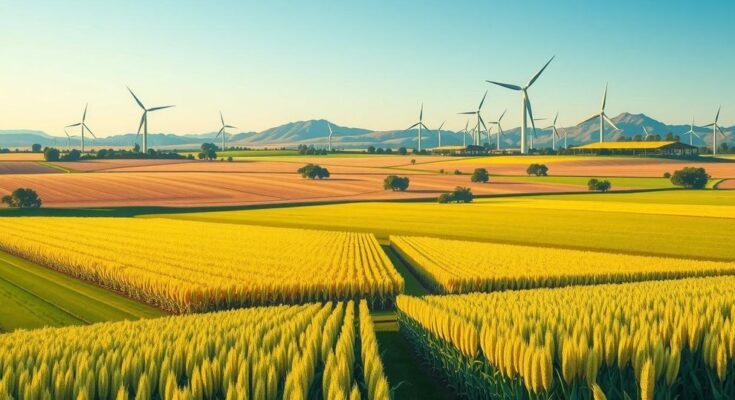Saul Luciano Lliuya, a Peruvian farmer, has filed a landmark climate lawsuit against German energy giant RWE in a German court. The case, driven by the threat of Palcacocha lake’s overflow to his home in Huaraz, seeks financial accountability for RWE’s greenhouse gas emissions. This lawsuit represents a significant legal precedent in climate litigation, advocating for the protection of vulnerable communities facing climate-induced threats.
In a landmark climate lawsuit, Peruvian farmer Saul Luciano Lliuya has initiated legal proceedings against German energy corporation RWE in a German court. This case arises from Lliuya’s concerns regarding the hazardous overflow of the Palcacocha mountain lake, the waters of which pose a significant threat to his home in Huaraz, situated below the lake. With Peru experiencing rapid glacier melt, the lake currently holds 35 times its usual volume of water, creating a dangerous scenario for Lliuya and 50,000 other residents in the area.
Utilizing German property law typically reserved for disputes between neighbors, Lliuya’s lawsuit seeks to hold RWE accountable for its contribution to climate change. Calculating that RWE is responsible for 0.47% of global carbon emissions since its establishment, he is requesting approximately $18,000, which represents 0.47% of the estimated cost to construct a protective dyke for his community.
The legal battle marks a culmination of nearly ten years for Lliuya and represents one of approximately 50 similar climate-related lawsuits globally. While the outcome will not create binding precedents, it can serve as a legal blueprint that other nations with comparable property laws, such as the United States, might follow. RWE refutes any legal liability, stating climate change stems from numerous sources, and posits that government policy, rather than individual lawsuits, should address the crisis.
The peril of Palcacocha dramatically echoes the past, as a 1970 earthquake led to a catastrophic landslide in the same valley, claiming around 25,000 lives. The impacts of climate change extend beyond immediate threats—communities are witnessing dwindling water sources from glacier melt, while river toxicity is increasing as heavy metals are exposed from melted ice. Agricultural practices are also suffering due to changing seasons and increased pest populations.
As Lliuya remarked, “It is scary, the risk from climate change… there is a lot of fear.” Germanwatch lawyer Francesca Mascha Klein emphasized the need for accountability, stating, “No one should live in fear of losing their home due to the climate crisis. Polluters have to step up and pay the true price of their business model.” The trial, taking place near RWE’s headquarters in Hamm, Germany, is anticipated to last several weeks.
The climate lawsuit initiated by Saul Luciano Lliuya against RWE highlights the critical intersection of environmental accountability and legal frameworks. The case raises questions about corporate responsibility for climate change and serves as an important precedent for future litigation. As communities grapple with the tangible impacts of climate change, this legal battle underscores the urgent need for protective measures and sustainable practices to address environmental challenges.
Original Source: www.gpb.org




